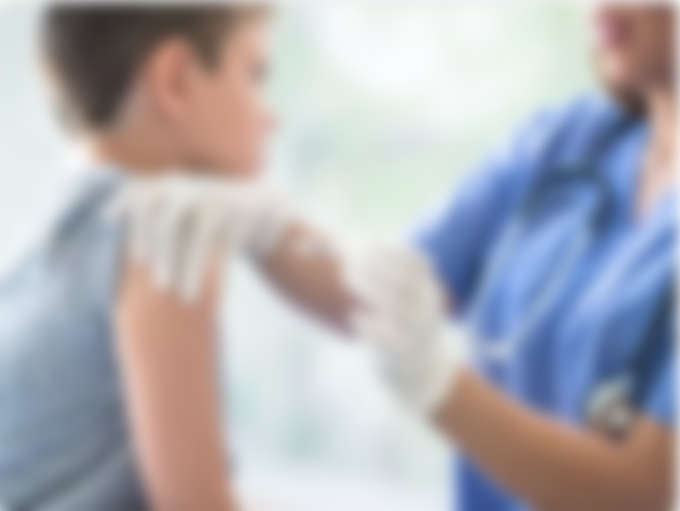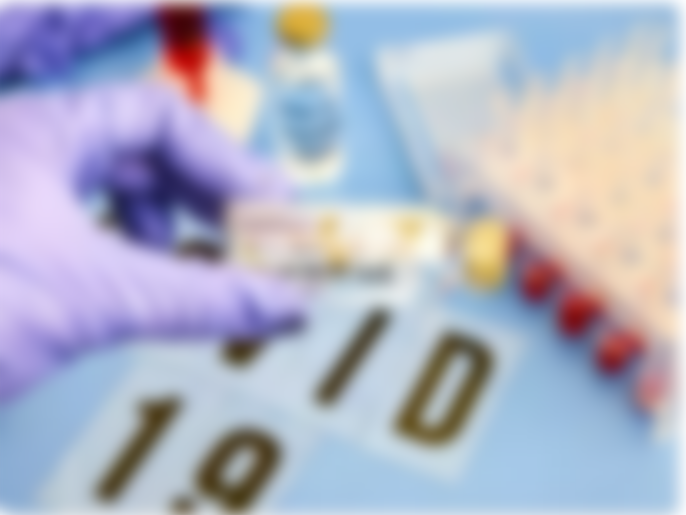
01/10Russian vaccine Sputnik V will be administered to the healthy age group first
Russian's Gameleya Institute became the first in the world to register a vaccine prototype for the masses on August 12. While the super-fast launch has been in the news for the many controversies surrounding its trials and safety tests, Russian authorities have also announced plans to expedite production plans of its vaccine so that they have millions of doses ready in the coming months and can make it available for other parts of the world as well.
02/10When will be vaccine be publically deployed?
According to reports, the first ones to get priority access to the vaccine would be doctors, frontline workers and teachers. Mass production and inoculation are expected to be done post September and the first batch of doses will be administered to priority group in the next two weeks.
Epidemiologists have also suggested that the first ones to be tested with the vaccine jab should be the ones belonging to the healthy bracket i,e. for those between the ages of 18-60.
03/10Researchers limit inoculation for children and elderlies

As per them, a lot more research is needed before the older generation, or the younger crowd is enrolled for vaccine inoculation. Vladimir Bondarev, head of the Russian health ministry, in his most recent briefing added that older people would be given the jab once any shortcomings are rooted out in post registration clinical trials:
"In Russia, it is customary to certify [vaccines for] children from birth to 18 years old; adults from 18 to 60 years old; and older people — over 60 years old. Clinical studies have now been carried out on a group of volunteers aged from 18 to 60 years old. Thus, this vaccine is now indicated for use in people from 18 to 60 years old."
04/10Gameleya Institute Director in his 60s tried the vaccine on himself
Interestingly, one of the prime researchers from Gameleya Institute, who administered the vaccine on himself as 'self-defence' is Director, Alexander Gintsburg, who is into his 60s. In interviews, he attested to feeling good and having no side-effects.
05/10Why is the vaccine being given to healthy volunteers at first?
There is more than one reason for a vaccine dose to be administered to just a healthy age group at first. Usually, vaccine studies are spread out in different phases so as to map out side-effects, pros and cons. The first phase of the study, thus, only involves a smaller pool of candidates who belong to a healthy category or have no previous medical conditions. This is one of the reasons why Russia's vaccine studies have been highly debated since it was launched just after testing on 30-40 volunteers.
TIMESOFINDIA.COM | Last updated on - Aug 14, 2020, 14:59 ISTShare fbsharetwsharepinshareComments (4)
01/10Russian vaccine Sputnik V will be administered to the healthy age group first
Russian's Gameleya Institute became the first in the world to register a vaccine prototype for the masses on August 12. While the super-fast launch has been in the news for the many controversies surrounding its trials and safety tests, Russian authorities have also announced plans to expedite production plans of its vaccine so that they have millions of doses ready in the coming months and can make it available for other parts of the world as well.
02/10When will be vaccine be publically deployed?
According to reports, the first ones to get priority access to the vaccine would be doctors, frontline workers and teachers. Mass production and inoculation are expected to be done post September and the first batch of doses will be administered to priority group in the next two weeks.
Epidemiologists have also suggested that the first ones to be tested with the vaccine jab should be the ones belonging to the healthy bracket i,e. for those between the ages of 18-60.
03/10Researchers limit inoculation for children and elderlies
As per them, a lot more research is needed before the older generation, or the younger crowd is enrolled for vaccine inoculation. Vladimir Bondarev, head of the Russian health ministry, in his most recent briefing added that older people would be given the jab once any shortcomings are rooted out in post registration clinical trials:
"In Russia, it is customary to certify [vaccines for] children from birth to 18 years old; adults from 18 to 60 years old; and older people — over 60 years old. Clinical studies have now been carried out on a group of volunteers aged from 18 to 60 years old. Thus, this vaccine is now indicated for use in people from 18 to 60 years old."
[bad iframe src]
[bad iframe src]
04/10Gameleya Institute Director in his 60s tried the vaccine on himself
Interestingly, one of the prime researchers from Gameleya Institute, who administered the vaccine on himself as 'self-defence' is Director, Alexander Gintsburg, who is into his 60s. In interviews, he attested to feeling good and having no side-effects.
(Photo used for representational purposes only)
05/10Why is the vaccine being given to healthy volunteers at first?
There is more than one reason for a vaccine dose to be administered to just a healthy age group at first. Usually, vaccine studies are spread out in different phases so as to map out side-effects, pros and cons. The first phase of the study, thus, only involves a smaller pool of candidates who belong to a healthy category or have no previous medical conditions. This is one of the reasons why Russia's vaccine studies have been highly debated since it was launched just after testing on 30-40 volunteers.
[bad iframe src]
06/10Vaccines can be only used if they help everyone in need

Only when is a vaccine able to immunize a wider base of the population, is it considered to be safe to be deployed. Thus, the Russian vaccine, despite its ambitious launch may not be the best suited one right now. Oxford University was the first candidate which announced plans to try immunizing younger children while Moderna Therapeutics Inc. was the first to conduct a separate trial for older adults.
07/10Why do vaccines work for limited groups?
The way a vaccine works is by testing out the body's immunity and its ability to fight infection.
Our immune system is core to our well-being and functioning. That being said, it is everchanging. Scientists say that the immune system's makeup completely undergoes a transformation in the first weeks post birth till the time one reaches old age. WBCs and other infection-fighting antibodies, which are at the root level of defence are also not well-built in these contrasting years. That is why, young children, elderlies, and sometimes even pregnant women are considered to be at the most risk for catching infections.
08/10Age-specific immunity poses a risk while developing a vaccine
Vaccines are also traditionally developed as 'one-size-fits-all', in a shorter timeline (such as right now) to meet the need. However, that makes the young and the old to throw up different immune response and expose the vaccine to greater percentages of failure in early phases. That is why, sometimes, an additional adjuvant is used to spike up immunity for the same reason to help those who are deficient or ill-equipped. Age-specific or frail immunity present in at-risk groups could make it harder for a vaccine to be the most effective for them.
Several kinds of research have also pointed out evidence that the count of T-cells in the body, which actively fight infection and support the immune system start to decline during old age.
09/10Who should get the vaccine first?
Current evidence dictates that SARS-COV-2 virus severely affects ones who are old or have pre-existing health conditions.
Before a vaccine is made publically available in the future, there are a lot of questions which need to be answered, including who will get access to the vaccine first- healthy volunteers or elderlies?
10/10Why should priority be made at developing a vaccine which works for the older generation?

Experts say that while a vaccine will be the most effective in the younger generation and could potentially 'slow down' the viral spread, in the older generation, if deployed well, it could save lives to a great extent.
The same way, a vaccine which will be able to provide ample of protection to children will not just prevent the spread of the disease, but save them from the danger of developing some scary COVID complications and further attest to the importance of vaccination drives in the younger years.




subcribe me & view my post .i also back you